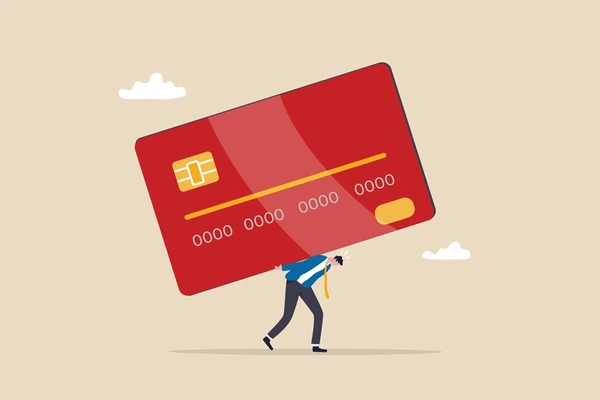Credit card debt is something many of us face at some point, and it can feel overwhelming. It’s not just about the numbers—there’s often a mix of stress, confusion, and sometimes embarrassment. But tackling credit card debt head-on can lead to real relief and a clearer path forward.
If you’re wondering where to start, talking with a nonprofit credit counseling agency is a great first step. These agencies provide a judgment-free zone where a counselor can review your credit report and budget, then suggest debt relief strategies tailored just for you. While some people turn to a debt relief company for help, nonprofit counselors offer advice with your best interest in mind, free from pressure to sign up for costly programs.
Let’s explore how facing credit card debt directly, with the right support, can empower you to regain control.
Why Facing Debt Directly Matters
Avoiding or ignoring credit card debt often makes the problem worse. Interest piles up, late fees add on, and calls from collectors become more frequent. Facing debt head-on helps you break this cycle.
By confronting your debt situation, you open the door to solutions. It’s a powerful step that reduces stress and builds momentum toward financial health.
Nonprofit Credit Counseling: A Safe Starting Point
Nonprofit credit counseling agencies specialize in helping people understand and manage their debt. During your first consultation, a counselor will review your credit report and monthly budget with you.
This isn’t about judgment; it’s about getting a clear picture. Counselors can identify where you’re overspending, find ways to cut costs, and suggest the best paths to pay off debt based on your unique situation.
Unlike some debt relief companies, nonprofit counselors work for your benefit without pushing specific products. Their goal is to educate and empower.
Understanding Your Debt and Budget
Before making any plans, it’s important to understand exactly how much you owe, to whom, and at what interest rates. Your credit report gives you this snapshot.
Together with your counselor, you’ll also track your income and expenses to see where your money goes. This transparency helps uncover habits that might be making debt harder to manage.
Having this full picture is the foundation for any successful repayment plan.
Debt Relief Strategies Tailored to You
Based on your report and budget, your counselor might recommend several debt relief options:
- Debt Management Plan (DMP): You make one monthly payment to the counseling agency, which then pays your creditors. Sometimes, creditors agree to lower interest rates or waive fees.
- Budgeting and Lifestyle Changes: Cutting back on non-essential expenses and making a plan to live within your means.
- Negotiation with Creditors: Counselors can sometimes negotiate better terms for you without needing formal programs.
- Referral to Other Resources: If your debt is unmanageable, they might suggest debt settlement or bankruptcy counseling—but only after exploring all other options.
Choosing the right strategy depends on your comfort level and financial goals.
The Role of a Debt Relief Company
While nonprofit counseling is a great starting point, some people eventually consider working with a debt relief company. These companies negotiate with creditors to reduce the amount you owe but often charge fees for their services.
It’s important to understand the costs, benefits, and risks before committing. Nonprofit counselors can help you weigh these options objectively.
Taking Control with Small Steps
Facing credit card debt isn’t about making one giant leap—it’s about steady progress. Celebrate small wins like paying off one card or reducing your monthly expenses.
Set realistic goals and stick to them. Even a little extra payment each month can significantly reduce debt over time.
Avoiding Common Pitfalls
Be wary of quick fixes or offers that sound too good to be true. Avoid new credit cards or loans that could increase your debt.
Also, watch out for scams promising to erase debt overnight. Genuine help takes time and effort.
Emotional Support Matters
Debt can take a toll on your mental health. Seeking help from counselors or support groups can provide encouragement and keep you motivated.
Remember, you’re not alone, and reaching out is a sign of strength.
Final Thoughts
Facing credit card debt head-on starts with honest assessment and seeking trustworthy support. Nonprofit credit counseling agencies offer valuable guidance to create a personalized debt relief plan without judgment or pressure.
Whether you’re just starting to manage your debt or considering a debt relief company, understanding your options empowers you to take control. With commitment and the right help, you can clear your credit card debt and build a more secure financial future.



































